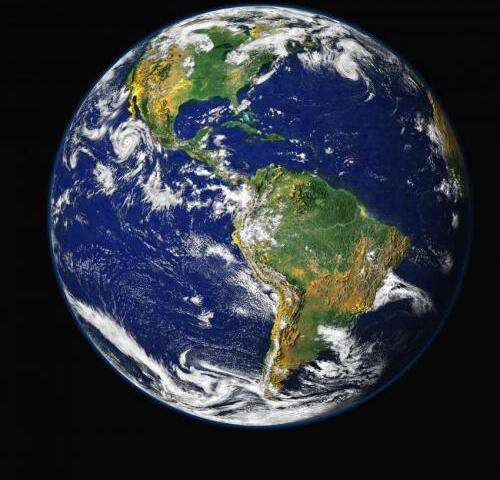New insights into the formation of Earth's crust

New research from Mauricio Ibanez-Mejia, an assistant professor of Earth and environmental sciences at the University of Rochester, and Francois Tissot, an assistant professor of geochemistry at the California Institute of Technology, gives scientists better insight into the geological processes responsible for the formation of Earth's crust.
In a paper published in the journal Science Advances, Ibanez-Mejia and Tissot studied the isotopes of the element zirconium.
Most elements in the periodic table have multiple isotopes; that is, different atoms of the same element can have different masses due to the varying number of sub-atomic particles in their nuclei. Researchers have traditionally assumed that processes occurring within the solid Earth, particularly in high-temperature environments such as those found in volcanoes and magma chambers, do not have the ability to 'fractionate'—distribute unevenly—isotopes of the heavy elements amongst solids and liquids because of the isotopes' minute differences in mass.
In the study, the researchers showed that stable isotopes of the element zirconium, a heavy transition metal, can be fractionated by magnitudes much larger than those previously thought and predicted by theory.
"This changes our view of how this element behaves in the solid Earth," Ibanez-Mejia says. "By recognizing this variability, we developed a tool that can help us gain further insights into the changing chemistry of magmas as they crystallize within Earth's crust."
More information: Mauricio Ibañez-Mejia et al, Extreme Zr stable isotope fractionation during magmatic fractional crystallization, Science Advances (2019). DOI: 10.1126/sciadv.aax8648
Journal information: Science Advances
Provided by University of Rochester





















